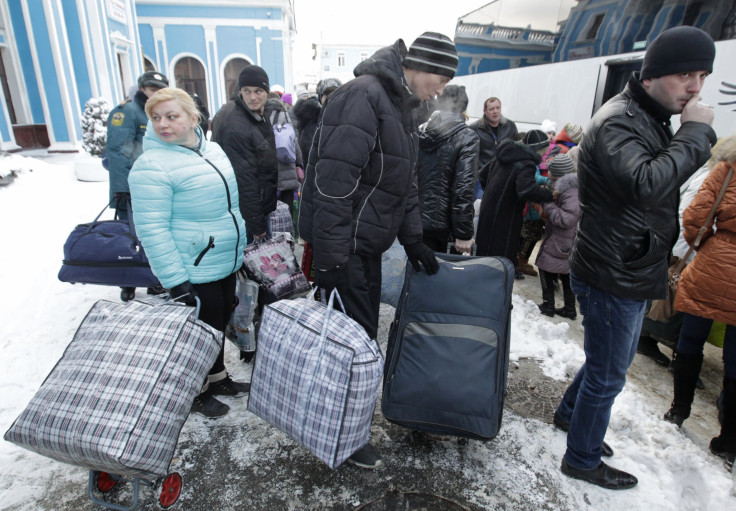Ukraine Crisis Update: UN Refugee Agency Concerned For Civilians Amid Lack Of Supplies, Continued Shelling

The United Nations Refugee Agency expressed concern Tuesday over the "worsening humanitarian situation" experienced by civilians in war-torn eastern Ukraine, especially those who reside in territory controlled by pro-Russian separatist rebels. Noncombatants who live near the cities of Donetsk, Luhansk and Debaltseve lack regular access to basic necessities like water and electricity and are unable to safely exit war zones, organization spokesman William Spindler said.
Constant shelling between the rebels and forces loyal to the Ukrainian government has resulted in civilian casualties, while transportation out of embattled areas is either expensive or nonexistent, the U.N. Refugee Agency said. The organization has continued food deliveries to war-torn areas, but said its staffers have noted that civilians “feel abandoned.”
“The fighting makes the delivery of humanitarian aid to the many civilians trapped in the conflict areas extremely difficult. The scarcity of basic supplies, including food, fuel and medicines, has driven up the prices of available supplies,” Spindler said in a news release. “Living conditions, particularly for those with damaged homes or sheltering in bunkers and basements under the rubble of their houses or apartment buildings, have been exacerbated by cold weather and low temperatures.
More than one million Ukrainians have been internally displaced since fighting began last April. Hundreds of thousands more have fled the country altogether.
Both NATO and the Ukrainian government have long alleged that Russia has provided logistical and direct support to separatist rebels in eastern Ukraine. Russia has repeatedly denied these accusations. German and French leaders brokered peace talks in February between Ukrainian President Petro Poroshenko and Russian President Vladimir Putin. The two sides agreed to a ceasefire Feb. 12 that called for the withdrawal of heavy weapons from the conflict’s frontlines, Reuters reported.
The ceasefire seemed set to fail within just one week, as fighting continued between separatists and government forces. Rebel leader Nikolai Kozitsyn and his Cossack fighters spearheaded Debaltseve’s capture Feb. 18. French President Francois Hollande and German Chancellor Angela Merkel urged both sides to continue ceasefire negotiations despite the repeated violations.
But fighting has since slowed down in eastern Ukraine, prompting optimism that the ceasefire may still succeed. The European Union called last week for an enhanced ceasefire monitoring mission in the region to help continue progress toward peace, but said economic sanctions would be enforced if violations continued.
© Copyright IBTimes 2024. All rights reserved.






















